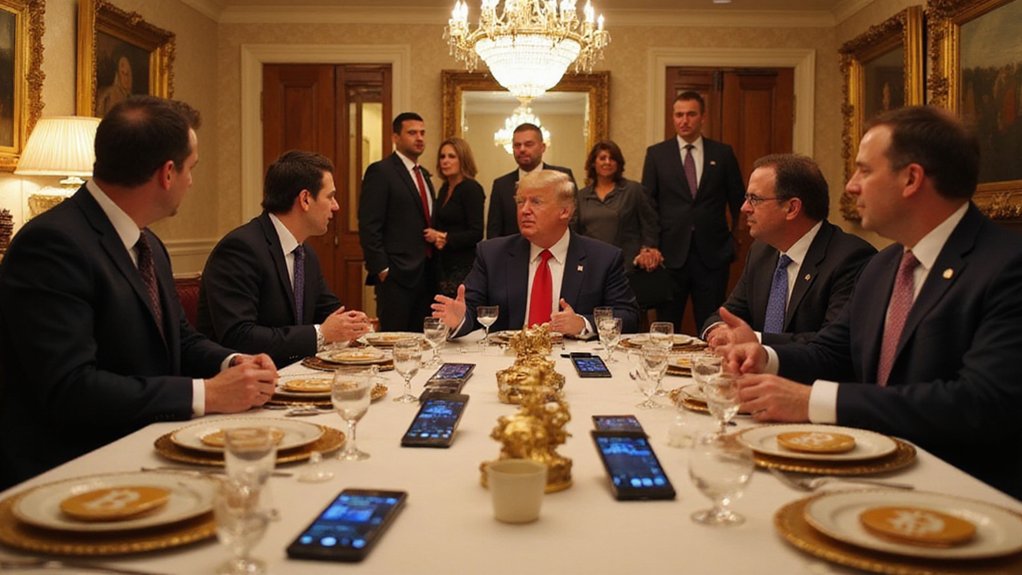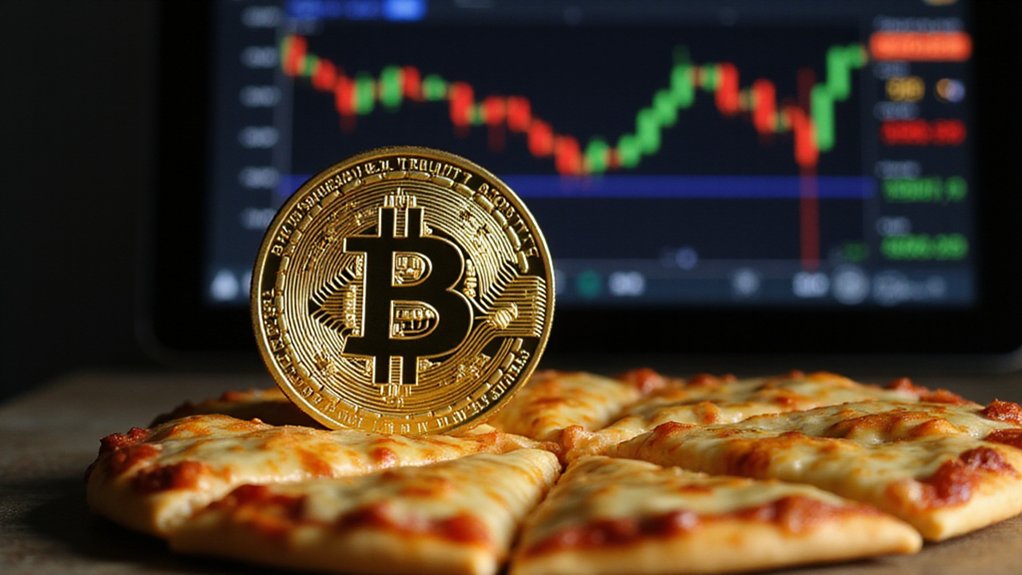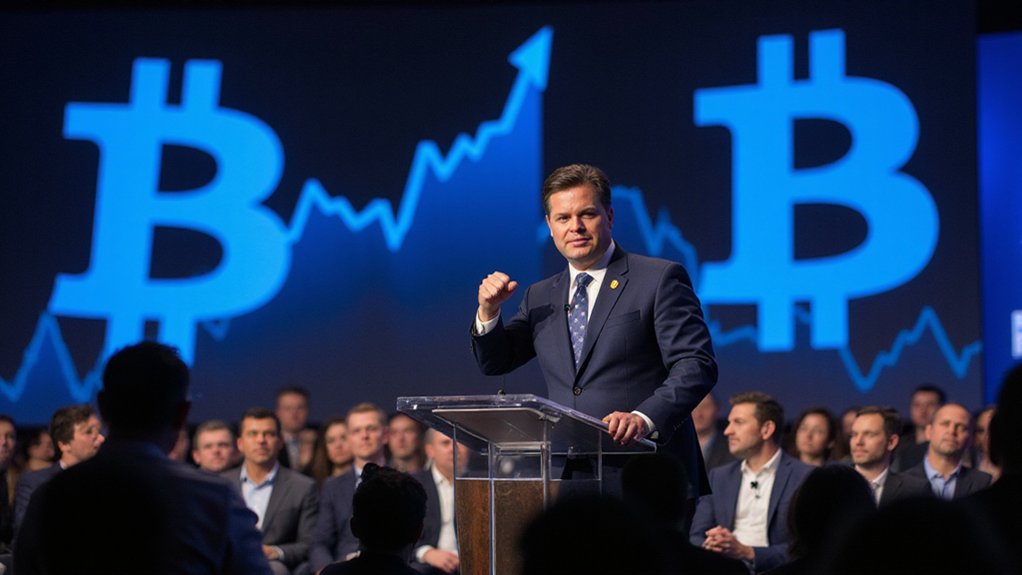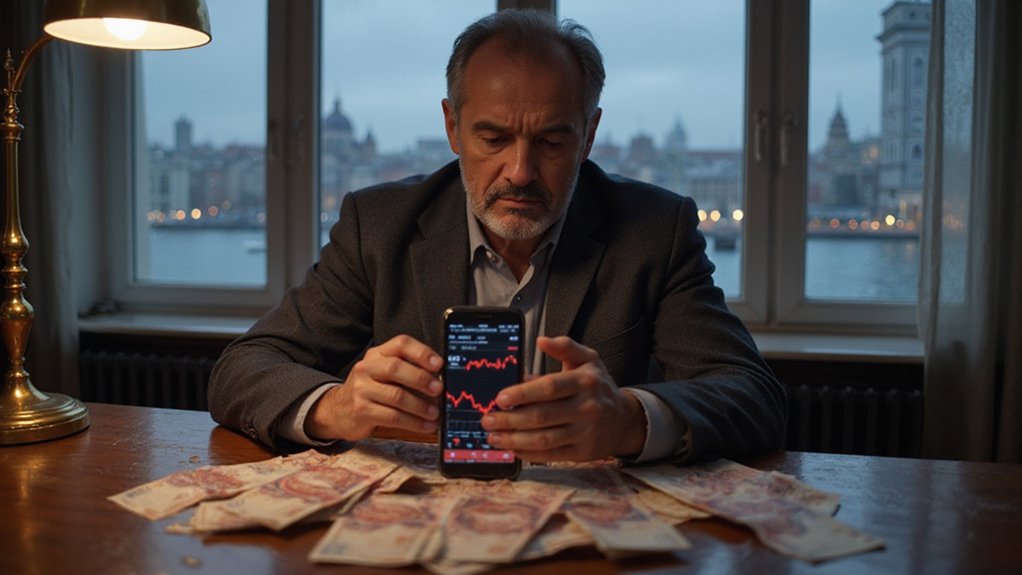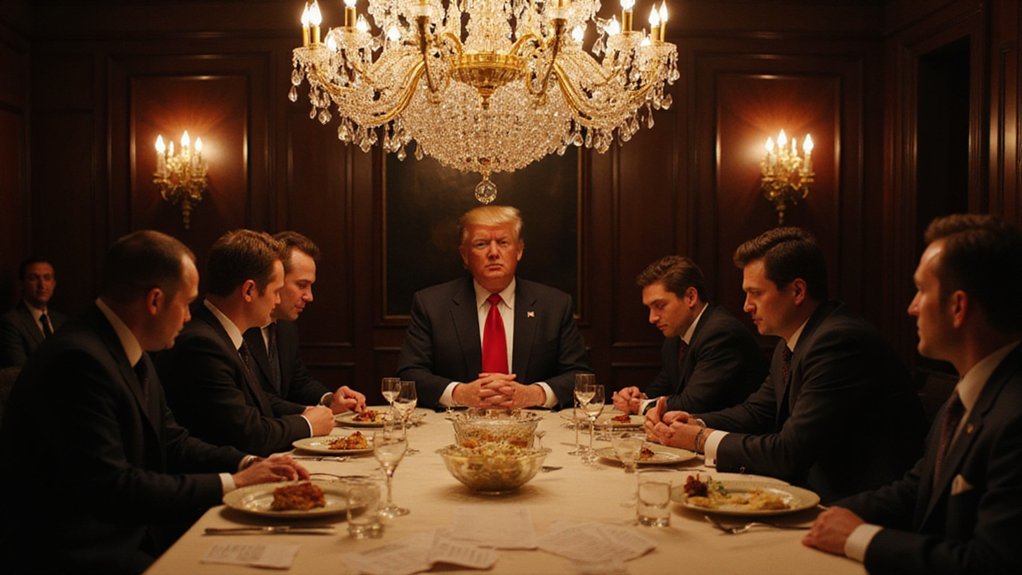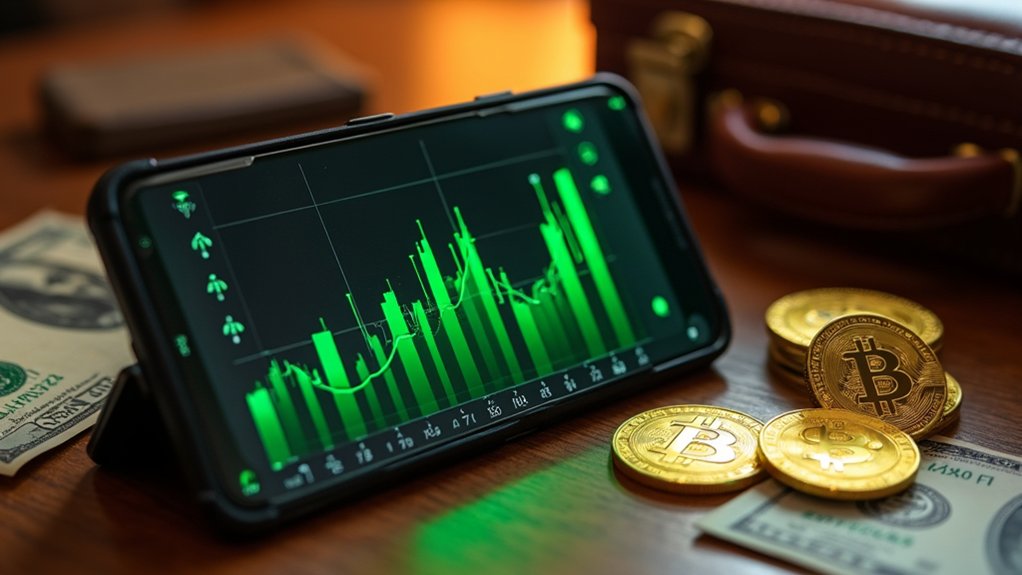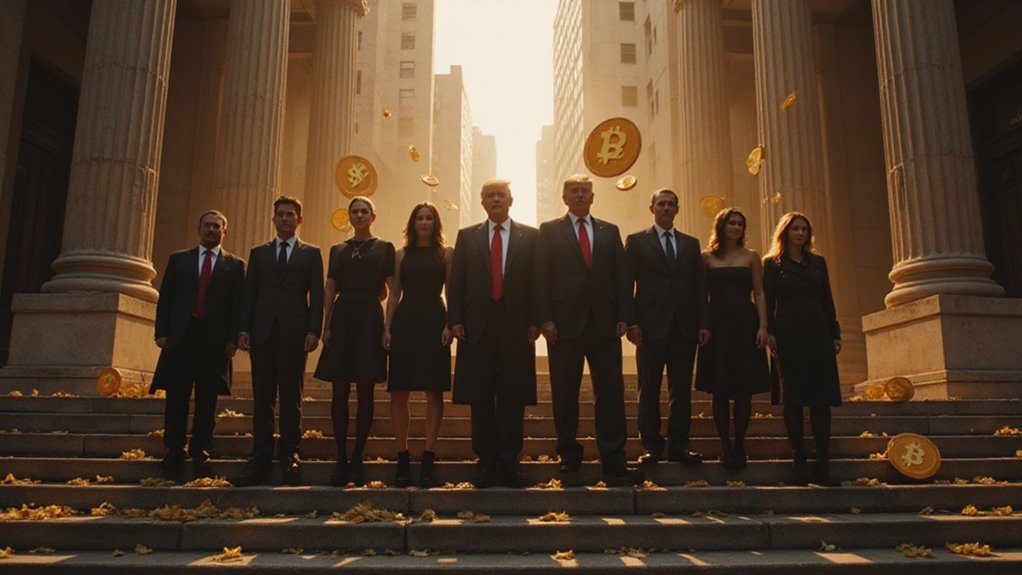How exactly does one reconcile the dignity of the American presidency with a glitzy cryptocurrency fundraiser?
This question loomed large after former President Trump hosted an exclusive dinner at his golf club on May 22, 2025, where the price of admission wasn’t measured in dollars but in investments in the Trump family’s meme cryptocurrency.
The opulent gathering—described by attendees as “wild and controversial”—attracted high-net-worth individuals who reportedly poured millions into the digital coin to secure their place at the presidential table. The event specifically catered to the top 220 purchasers of the $TRUMP meme coin.
Trump allegedly netted at least $1.3 million in transaction fees shortly after the coin’s launch, raising eyebrows across political and financial spheres alike.
The monetization of political influence via blockchain technology represents a novel—if ethically dubious—fusion of America’s twin obsessions: wealth accumulation and proximity to power.
When politics meets blockchain, we find the ultimate American cocktail—power and greed served on the rocks.
Trump’s inner circle appeared blindsided by the event.
Several aides and legal advisors reportedly expressed shock and objection, concerned about the blatant appearance of a presidency for sale. CBS News correspondent Nancy Cordes is investigating these ethical concerns surrounding the event and the implications of guests essentially buying access to the president.
The White House hastily attempted to distance itself from the affair, insisting it was a private function unrelated to official duties—a distinction that seems increasingly academic when the host occupies the Oval Office.
Media coverage was predictably incendiary.
Journalists confronted Trump with pointed questions about the legitimacy of leveraging presidential status to boost cryptocurrency valuations.
Social media reactions spanned from crypto enthusiasts’ exuberance to widespread condemnation from ethics watchdogs. The controversy erupted just days before FTX’s scheduled $5.4 billion payout to creditors as part of its bankruptcy proceedings.
The event’s controversial nature intensified scrutiny from regulatory bodies regarding Trump’s financial entanglements.
Legal experts speculated about potential violations of campaign finance laws and conflicts of interest that might arise when a sitting president’s financial fortunes become inextricably linked with speculative digital assets.
In the annals of presidential fundraising, this crypto gala stands apart—not merely for its audacity but for its perfect encapsulation of an era where political capital and financial speculation have become indistinguishable from one another.
